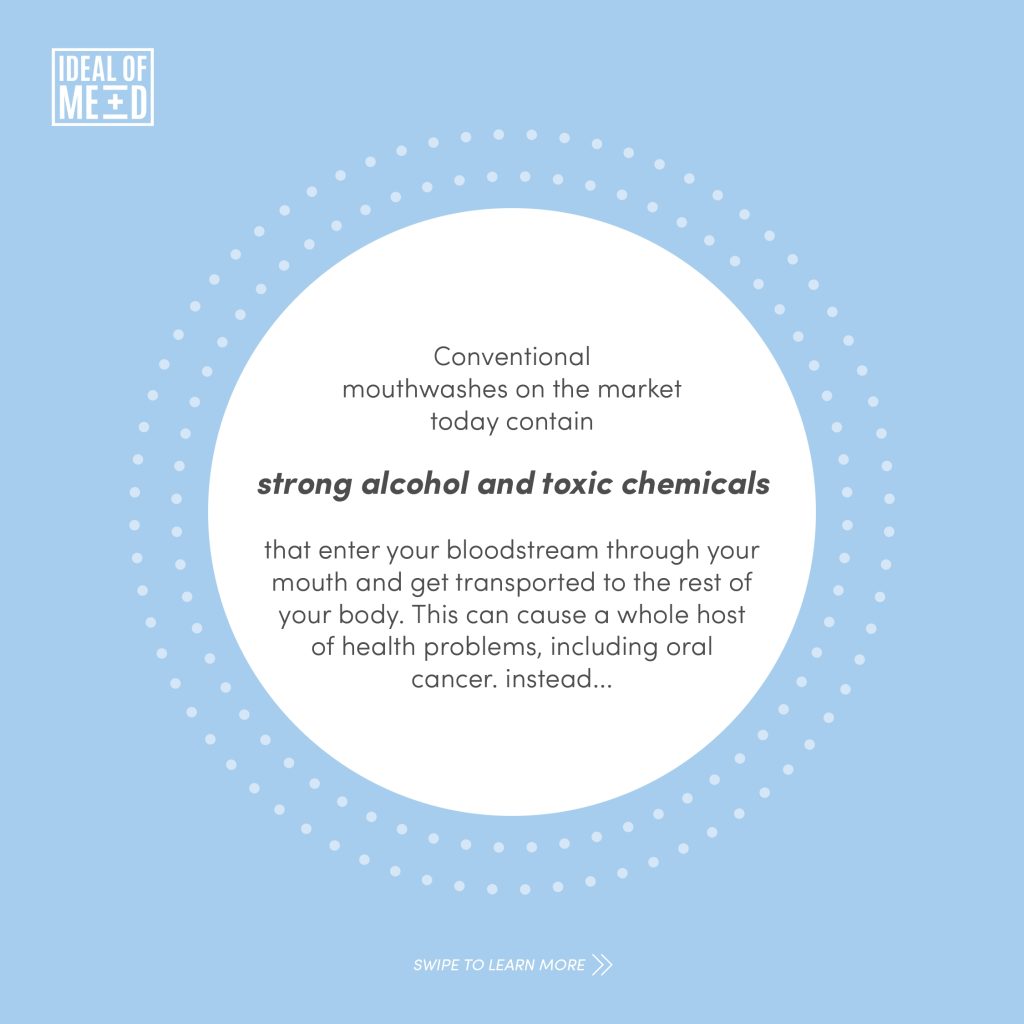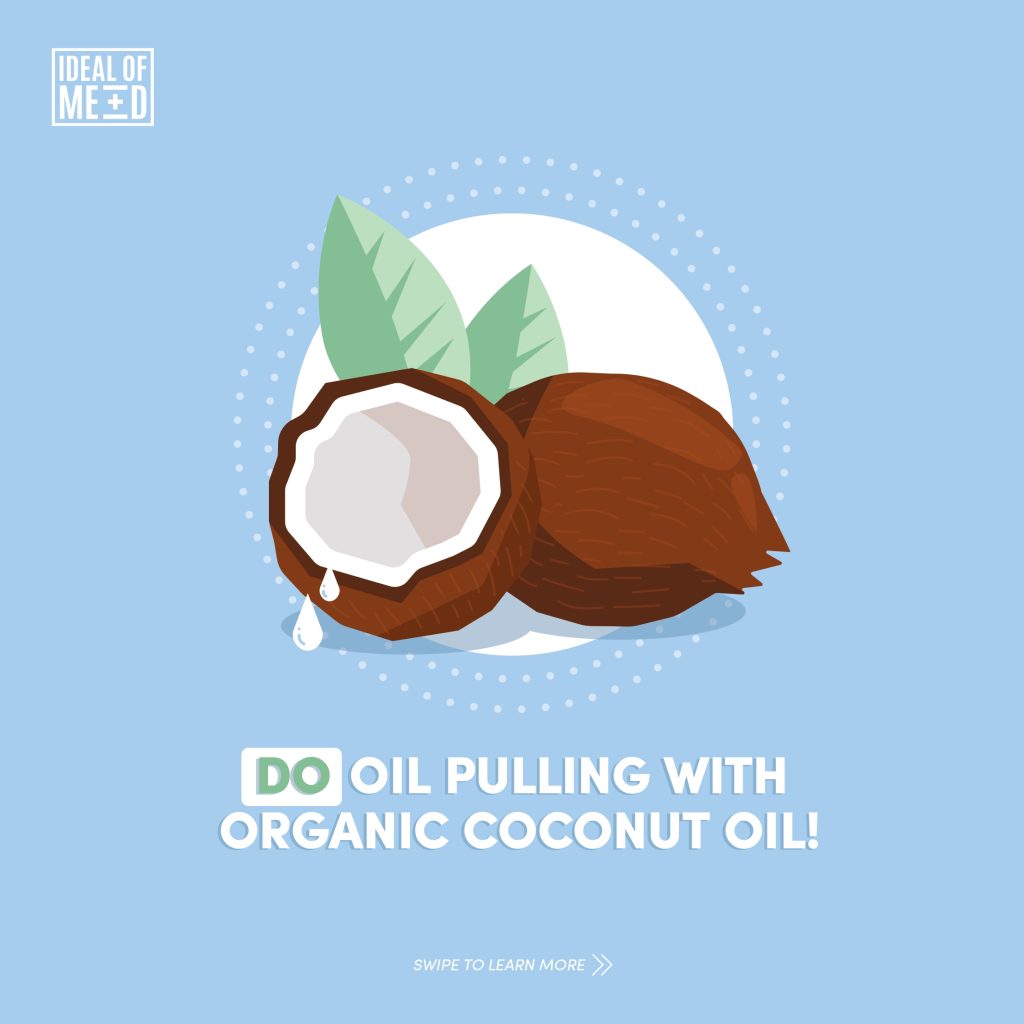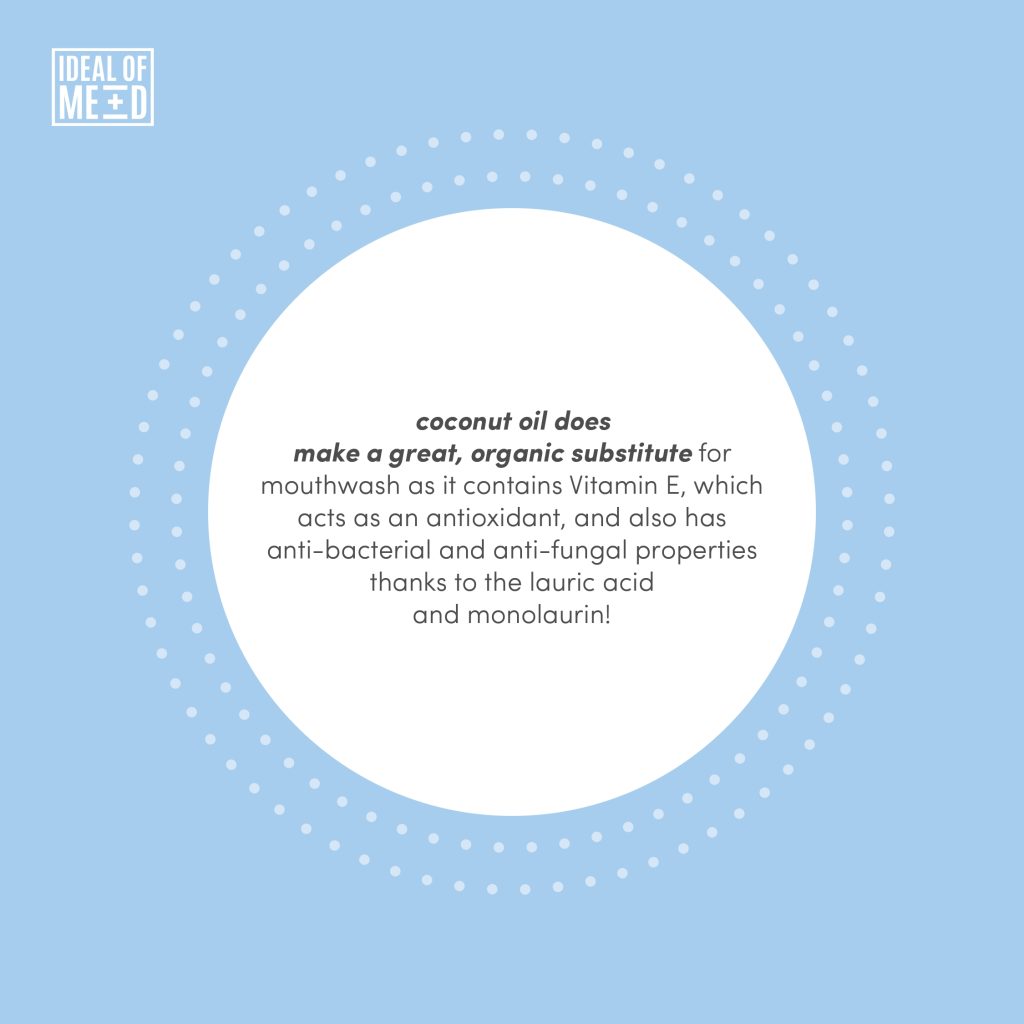Oil pulling, a centuries-old oral hygiene method, involves swishing oil around in your mouth to eradicate microorganisms. It has been shown to eliminate bacteria in the mouth and enhance dental health, according to research. Oil pulling purports to “draw” microorganisms from the mouth, however, how exactly it does this is unclear. Increasing saliva and hydrating your gums may also help minimize bacteria.
Until now, you may have been using a traditional mouthwash to do the job for you. However, there are several negative side effects of a mouthwash that we need to discuss before you decide to use it again. But first, why do we need to rinse our mouth anyway?

Why You Should Rinse Your Mouth
Oil pulling can eliminate bacteria in your mouth, strengthen your teeth, and prevent gum disease if you incorporate it into your daily oral hygiene practice with brushing and flossing. Gingivitis-causing bacteria can be eliminated by using mouthwash, according to clinical trials.
According to current recommendations, you should always rinse your mouth after flossing to remove any remaining plaque or bacteria. In 2018, a small study of dentistry students found that flossing before brushing may assist.
Brushing before flossing will help you remove the majority of the plaque that has built up since your previous cleaning. If you brush first, you can skip flossing because brushing removes more plaque than flossing does. This can result in a sticky mess for many people.
Why “traditional” Mouth Wash Is Useless (well, it is)?
As it’s well-known that alcohol may kill germs (it’s often used as a disinfectant), the alcohol in mouthwashes is added with the explicit purpose of killing bacteria that cause bad breath. However, this isn’t actually the case.
Microorganisms can’t be killed since the concentration employed in mouthwash is too low. It all comes down to the actual concentration of alcohol used. Beers have 3% to 8% alcohol, wine has 7% to 18%, and spirits have 30% or more. In the drugstore, you’ll find disinfection alcohol that ranges from 70 to 99 percent alcohol. An antibacterial effect is not achieved by mouthwashes, which have alcohol concentrations of up to 25%.
As if that wasn’t awful enough, alcohol might actually worsen bad breath. Due to the drying effect, the germs that produce bad breath might find it more comfortable in your mouth.
Mouthwashes do not contain alcohol to kill bacteria, but rather as a preservative and a transporter for menthol and other active substances. Even if mouthwash masks foul breath odors, the bacteria that cause them cannot be eradicated by it.
In order to reduce your risk of cavities and gingivitis (gum inflammation), you may wish to consider a “therapeutic mouthwash” as an addition to your dental hygiene regimen such as coconut oil, and use it for oil pulling.

Use Coconut Oil as Mouthwash instead
Many oils have anti-inflammatory and anti-bacterial qualities that are beneficial for maintaining good dental health, and this is especially true for coconut oil. Despite this, little study has been done on oil pulling, and the benefits of this technique are hotly debated.
Coconut Oil Kills Harmful Bacteria
It is estimated that up to 350 different kinds of bacteria can be detected in your mouth at any given time. There are specific types of bacteria that can lead to dental damage, poor breath, and gingivitis (gum disease).
There is nothing wrong with having some plaque on your teeth, but if it gets out of hand, it can cause foul breath, gum inflammation, gingivitis, and cavities, among other things.
When you swish the oil around your mouth, the germs are whisked away and dissolve in the liquid oil, which is how oil pulling works. Extra-virgin coconut oil is a popular choice for oil pulling because of its nice flavor.
Dental Treatments Are Easier to Carry Out
If you are expecting (or want to avoid) to have dental treatment done in the future, you need to ensure that your teeth and gums are as healthy as possible in order for the doctor to perform the procedure without too much trouble.
Coconut oil will help to moisturize your gums and remove a significant amount of unwanted bacteria, which will stop your gums from bleeding during the dental treatment process and will also help your gums to heal faster.
How To Perform An Coconut Oil Pull
The following is a quick and easy guide on how to properly perform oil pulling:
- Gargle with around a tablespoon of oil.
- For about 10–20 minutes, swish the oil around your mouth.
- You could brush your teeth once you’ve spit out the oil, but I typically have coffee with Chaga instead.
- To avoid clogging your pipes, spit the oil onto a piece of paper and dispose of it in the trash.
Using a lot of force will not be necessary for this situation. Relax your facial muscles if oil pulling causes them pain. Don’t squirt the oil all over the place, and don’t use a lot of it.
Before cleaning your teeth, some recommend doing an oil pull on an empty stomach. Many people do it in the morning while taking a shower or bath.

How to get started with your daily coconut Oil Pull
Oil pulling has been shown to reduce dangerous germs in your mouth, prevent plaque buildup, and improve both gum health, immune system, and oral hygiene.
Combine oil pulling with your intermediate fasting and morning routines
Hopefully, you are into intermittent fasting already, the health benefits (including better teeth, hair, skin, etc) are so great that it can’t be ignored from a longevity and beauty perspective and oil pulling combined with skipping breakfast is a great way to start the day.
Do Coconut oil pull in the morning and kill those “bad” overnight bacterias
So when you wake up in the morning, your mouth is full of “bad bacteria”, you don’t want these guys in your gut where 70% of your immune system resides, you want them gone.
So first thing in the morning, before drinking any liquid water or coffee, take a tablespoon of organic coconut oil (obviously all the stuff we consume should be organic) and do your coconut pulling.
It is also important to highlight that it should not be used in place of standard oral hygiene measures, such as brushing and flossing, receiving regular dental cleanings, and consulting your dentist about any oral hygiene problems.
Oil pulling, on the other hand, maybe a safe and efficient natural cure for improving dental health when used as a supplement.
#Life hack. Make oil pulling a great habit by incorporating it to your morning routines
I typically have coconut oil in the kitchen and do my oil pulling every morning for about 10-15 minutes (15 minutes is better, but typically my coffee is finished after 10 min, need to fix that..) while I prepare coffee and some daily supplements. No loss of time, all bacteria gone, simply a great habit.
Let us know how it goes, good luck!
